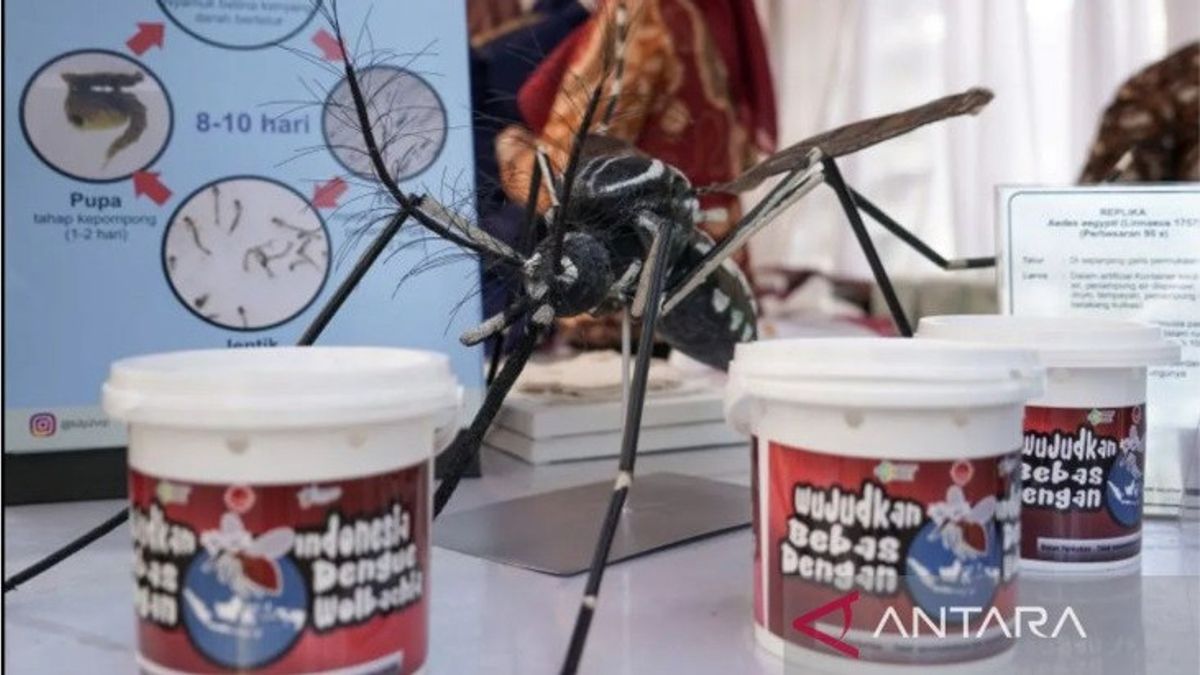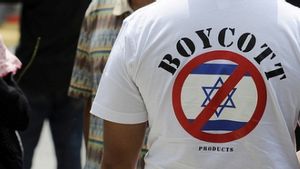JAKARTA Recently, Indonesians are being shocked by the Wolbachia mosquito. Although it is considered to be one way to suppress the transmission of dengue hemorrhagic fever (DHF), not a few have rawly rejected the presence of the Wolbachia mosquito.
The Wolbachia mosquito became a massive topic of conversation after Balinese residents were busy rejecting the spread of millions of Wolbachia mosquito eggs. This was stated by the Acting Governor of Bali, Sang Made Mahendra Jaya some time ago.
He emphasized that the rejection was carried out because the Balinese people had not received any socialization from the plan to spread the Wolbachia mosquito eggs.
"Bali firmly rejects. Because this program has not been massively socialized to the wider community," he said Sunday (19/11).
Launching the Ministry of Health page, Wolbachia is a natural bacteria that can only live in the bodies of insects, including mosquitoes. Wolbachia cannot survive outside the insect body cells and cannot replicate itself without the help of its host insects.
This Wolbachia bacteria is then put into the Aedes aegypti mosquito so that the dengue virus carried by mosquitoes has decreased its potential to be spread and move from one human to another. Citing a number of sources, Wolbachia is safe for humans and the environment.
Meanwhile, The New York Times writes that the Aedes aegypti mosquito carrying the Wolbachia bacteria in it can also control other viruses such as zika, chikungunya, and yellow fever.
The Ministry of Health appointed six cities as pilot projects for the spread of aedes mosquitoes that have Wolbachia bacteria, namely Bali, West Jakarta, Bandung, Semarang, Kupang, and Bontang.
However, the plan raises pros and cons. A number of narratives circulating include the Wolbachia mosquito being the result of genetic engineering, so that it is not known its long-term impact.
Another narrative mentions that this mosquito, which is called the one made by Bill Gates, is a covert mission to shape LGBT genetics. Not to mention the issue of a global elite conspiracy about the breeding of Wolbachian mosquitoes that can threaten national security.
Recently, there has been an assumption that mosquitoes that have Wolbachia bacteria in them can spread the Japane enchephalitis virus.
Minister of Health in the era of President Susilo Bambang Yudhowono, Siti Fadillah Supari, was among those who doubted the Ministry of Health's program to spread Wolbachia mosquitoes. He objected when the community became the subject of research, especially since the effectiveness of the spread of Wolbachia mosquitoes is also feared to have not been tested.
"This is what makes the inconvenience in my opinion as a sovereign nation. In terms of health, I think the DHF has been controlled by programs from the Ministry of Health," he said at a press conference Monday (13/11/2023).
In order to reduce the circulating issues, the health expert of the Indonesian Doctors Association (IDI), Professor Zubairi Djoerban spoke about the spread of Bill Gates' muak in Indonesia. He explained that this Wolbachia mosquito is a project developed by the World Mosquito Program (WMP), which is a company owned by Monash University.
"Maybe because this project has the support of the Bill & Melinda Gates Foundation, it is widely known as the Bill Gates mosquito," said Prof. Zubairi on his X account @ProfesorZubairi, Friday (17/11/2023).
The purpose of developing this project is to reduce the spread of Dengue Fever (DHF), yellow fever, and chikungu. These Wolbachia bacteria can paralyze the condensed virus contained in the Aedes aegypti mosquito," he added.
The Wolbachia mosquito spread project was carried out to reduce the transmission rate of dengue hemorrhagic fever (DHF) due to the Aedes aegypti mosquito.
Launching the website of the Coordinating Ministry for Human Development and Culture (Kemenko PMK), dengue cases in Indonesia continue to increase. From 73,518 cases with a death rate of 705 people in 2021, it rose to 131,265 cases with a death rate of 1,183 people in 2022.
Meanwhile, in the period January to July 2023, 42,690 people were found infected with dengue fever and 317 people died.
SEE ALSO:
Innovation of Aedes aegypti mosquitoes with Wolbachia is a new strategy to overcome transmission of dengue cases in Indonesia. As mentioned earlier, the release of the Wolbachia mosquito is a collaboration program between the Ministry of Health and the World Mosquito Program (WMP). This was also confirmed by dr.Arifianto, Sp.A (K) through his Instagram account.
The spread of the aedes mosquito infected by Wolbachia is an important effort to reduce dengue fever cases. Hopefully in the future, dengue cases will continue to decline in Indonesia," said dr. Arifianto, Sp.A(K)
Citing WMP, dengue control is done first by inserting Wolbachia bacteria into the Aedes aegypti mosquito eggs. When the male Aedes aegypti mosquito with Wolbachia mates with wild female mosquitoes without Wolbachia bacteria, the dengue virus in female mosquitoes is blocked, so the eggs do not hatch.
In Indonesia alone, male and female mosquito eggs are put in a bucket that is placed in a resident's house. Then mosquitoes will reproduce and produce a population of Aedes aegypti mosquitoes in a Wolbachian environment.
Although the Wolbachia mosquito has gone viral recently, this project has actually been tested since 2011 in Yogyakarta by WMP with the support of the Tahija foundation's philanthropy. The research was carried out through the preparation phase and release of aedes aegypti with Wolbachia on a limited scale (2011-2015).
Prior to the pilot project decision in five cities in Indonesia, the trial of the spread of the Wolbachia mosquito was also carried out in the cities of Yogyakarta and Bantul Regency in 2022. As a result, in locations that have been distributed, Wolbachia has been proven to be able to suppress cases of dengue fever by up to 77 percent, and reduce the proportion of hospitalization by 86 percent.
Wolbachia technology has also been implemented in nine other countries and has proven effective in preventing dengue, namely Brazil, Australia, Vietnam, Fiji, Vanuatu, Mexico, Kiribati, New Caledonia, and Sri Lanka.
However, it should be remembered that the spread of Wolbachia mosquitoes is only one of the efforts to suppress the spread of dengue fever. Another action needs to be accompanied to avoid dengue fever by taking steps called 3M, namely draining water reservoirs, closing water reservoirs, and recycling various items that have the potential to become breeding grounds for Aedes aegypti mosquitoes.
The English, Chinese, Japanese, Arabic, and French versions are automatically generated by the AI. So there may still be inaccuracies in translating, please always see Indonesian as our main language. (system supported by DigitalSiber.id)













